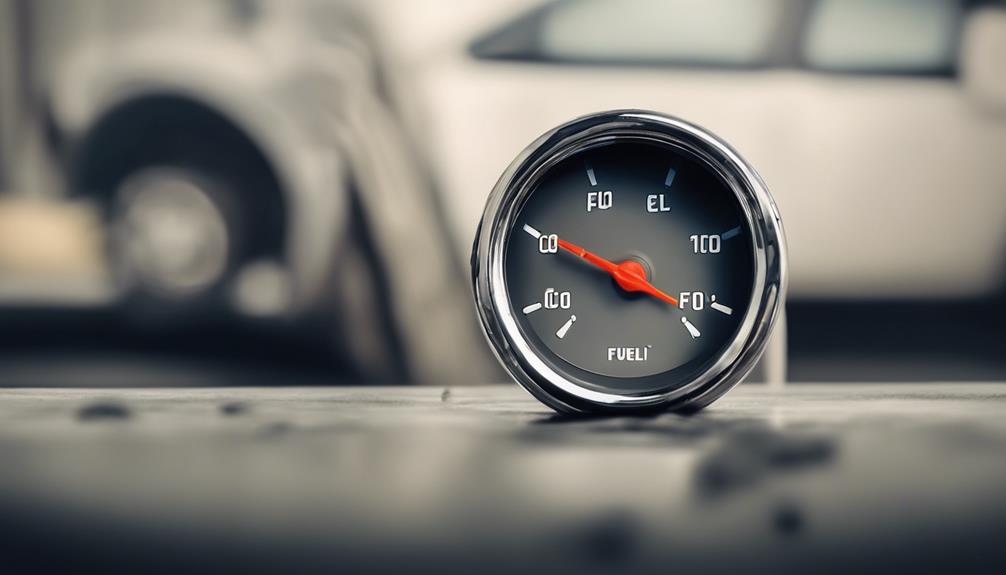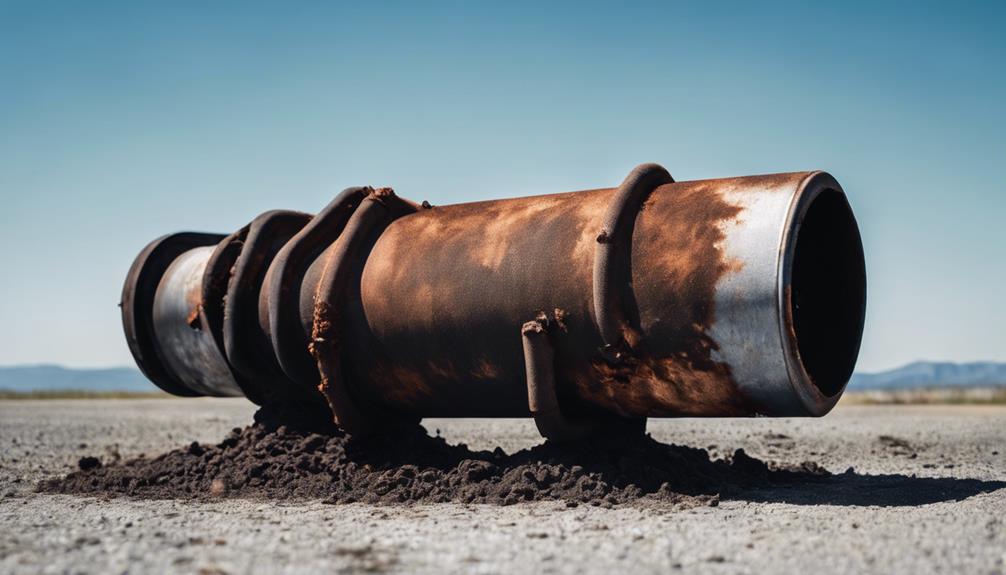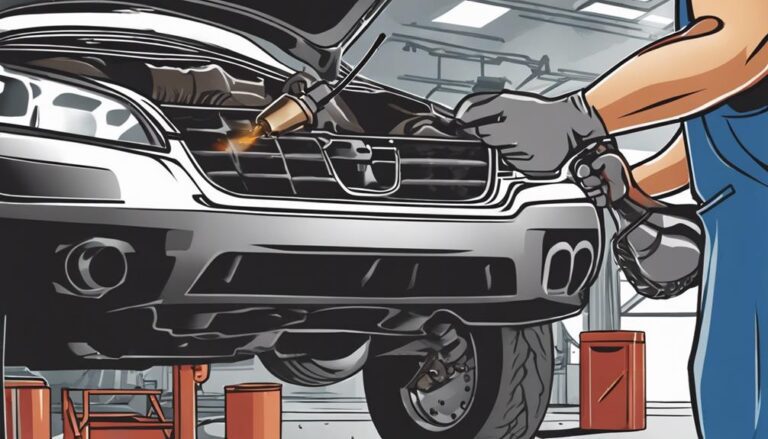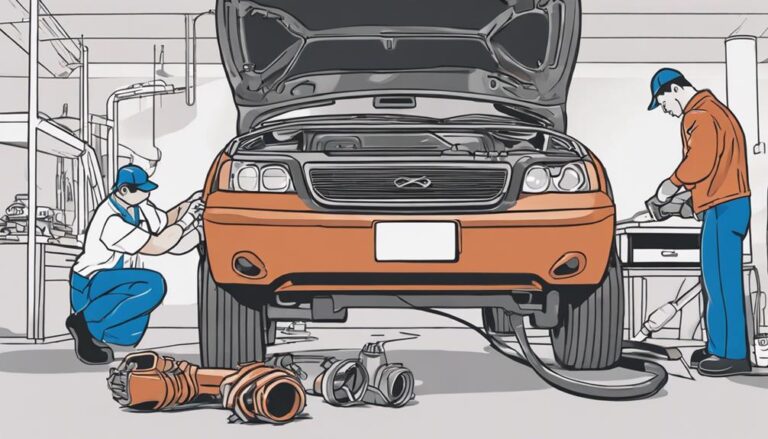When to Replace Your Catalytic Converter: A Guide
If you've ever noticed a noxious odor lingering around your vehicle or experienced a sudden drop in performance, you might be facing a failing catalytic converter. But when exactly is the right time to contemplate a replacement?
Understanding the key indicators and implications of a compromised converter is vital for maintaining your vehicle's efficiency and complying with emission standards. Let's explore the critical factors that can help you make an informed decision about the health of your catalytic converter.
Key Takeaways
- Regular inspections detect issues early, prevent harmful emissions.
- Loss of engine power and exhaust flow restriction signal converter failure.
- Monitor fuel efficiency for signs of converter deterioration, address promptly.
- Engine warning lights indicate converter problems, prompt diagnostic checks essential.
Signs of Bad Smells
If you notice a strong sulfuric smell emanating from your vehicle's exhaust, it could be a clear indication of a malfunctioning catalytic converter. The presence of a pungent odor like rotten eggs is often a telltale sign of elevated hydrogen sulfide emissions, a byproduct of the catalytic converter's operation. Your vehicle's catalytic converter plays a vital role in reducing harmful emissions by converting them into less harmful substances before they exit through the exhaust system.
When the catalytic converter isn't functioning correctly, it may fail to convert hydrogen sulfide efficiently, leading to the distinct rotten egg smell in the exhaust. This odor indicates that the converter is unable to carry out its chemical conversion process effectively. Detecting foul smells in the exhaust system is critical as it can point towards potential issues with the catalytic converter and the overall emission control system of your vehicle. Regular inspections and prompt replacement of a faulty converter can help maintain the best vehicle performance and reduce harmful emissions.
Loss of Engine Power
Experiencing a noticeable loss of engine power can often signal a potential issue with your catalytic converter, affecting your vehicle's acceleration and overall performance. When the catalytic converter fails, it can lead to a restriction in the exhaust flow, causing reduced engine power.
This restriction occurs because the converter is unable to efficiently process the exhaust gases, resulting in hindered performance. A malfunctioning catalytic converter may struggle to convert harmful gases into less harmful substances, impacting the engine's ability to generate power effectively.
If you notice a loss of engine power during acceleration or overall performance issues, it could be a sign of a failing catalytic converter. Addressing this promptly is important to restore your vehicle's power and performance.
Reduced Fuel Efficiency

A failing catalytic converter can greatly impact your vehicle's fuel efficiency, leading to increased trips to the gas station. When your catalytic converter isn't functioning properly, it can cause inefficient fuel combustion, resulting in reduced mileage and higher fuel costs. Here are key points to take into account regarding reduced fuel efficiency:
- Catalytic Converter Issues: A deteriorating catalytic converter can directly affect your fuel efficiency, as it plays an essential role in reducing harmful emissions from your vehicle.
- Monitoring Fuel Consumption: Keeping track of your fuel consumption can help you identify changes in efficiency that may indicate problems with your catalytic converter.
- Improving Overall Performance: Addressing reduced fuel efficiency promptly is essential to prevent further damage to your catalytic converter, ensuring the best vehicle performance and reducing fuel expenses.
Engine Warning Lights
Engine warning lights are important indicators that may signal underlying issues with your catalytic converter's functionality. The Check Engine Light can illuminate due to a drop in catalytic converter efficiency, impacting emissions.
If the engine warning light persists, it's essential to conduct a diagnostic check to assess whether the catalytic converter requires replacement. Neglecting this warning may result in reduced vehicle performance and potential environmental consequences.
Modern vehicles utilize onboard diagnostics to monitor the catalytic converter's performance, triggering warning lights to prompt timely action. Hence, it's imperative to address any Check Engine Light related to the catalytic converter promptly to guarantee vehicle operation and minimize harmful emissions.
Remember to heed these warnings and prioritize the replacement of the catalytic converter when necessary to maintain your vehicle's efficiency and environmental friendliness.
Choosing the Correct Replacement Part

To guarantee maximum vehicle performance and emissions control, selecting the correct replacement catalytic converter that's compatible with your specific vehicle make, model, and engine size is paramount.
When you need a new catalytic converter, make you follow these guidelines:
- Check Compatibility: Make sure the replacement part matches your vehicle's specifications to avoid performance issues and maintain proper emissions control.
- Consult a Professional: If you're unsure about which catalytic converter is the right fit for your vehicle, seek guidance from a professional mechanic or refer to your vehicle manual for accurate information.
- Prioritize Performance and Emissions Control: Optimal fit is crucial for your vehicle's efficiency and emission levels. Installing an ill-fitting converter can lead to decreased performance and potential damage to your vehicle's systems.
Frequently Asked Questions
How Do I Know When My Catalytic Converter Needs Replacing?
If your catalytic converter needs replacing, watch out for signs like rattling noises, sulfuric smells, power loss, reduced fuel economy, and the Check Engine light. Consult a technician for a diagnostic evaluation for solutions.
At What Mileage Does a Catalytic Converter Need to Be Replaced?
When your catalytic converter approaches 100,000 to 150,000 miles, watch for warning signs like decreased efficiency, emissions issues, and increased maintenance costs. Replacing it at these mileage thresholds can save you from further problems.
Do I Really Need to Replace My Catalytic Converter?
If your catalytic converter is faulty, you should replace it promptly. Ignoring this can harm your vehicle's performance, trigger the Check Engine Light, fail emissions tests, and have legal implications. DIY solutions are limited.
What Are 2 Symptoms of a Failed Catalytic Converter?
If your catalytic converter fails, you might experience decreased engine performance and a persistent sulfuric smell from your exhaust. These symptoms can affect emissions testing and worsen fuel efficiency. Keep an eye on your catalytic converter health!
Conclusion
Congratulations! You're now equipped with the knowledge to detect and address catalytic converter issues like a pro. By recognizing the signs early on and choosing the correct replacement part, you can guarantee top-notch vehicle performance and efficiency.
Remember, staying on top of maintenance and seeking expert advice are key to keeping your car running smoothly. Keep up the good work in maintaining your vehicle's catalytic converter for peak performance!







